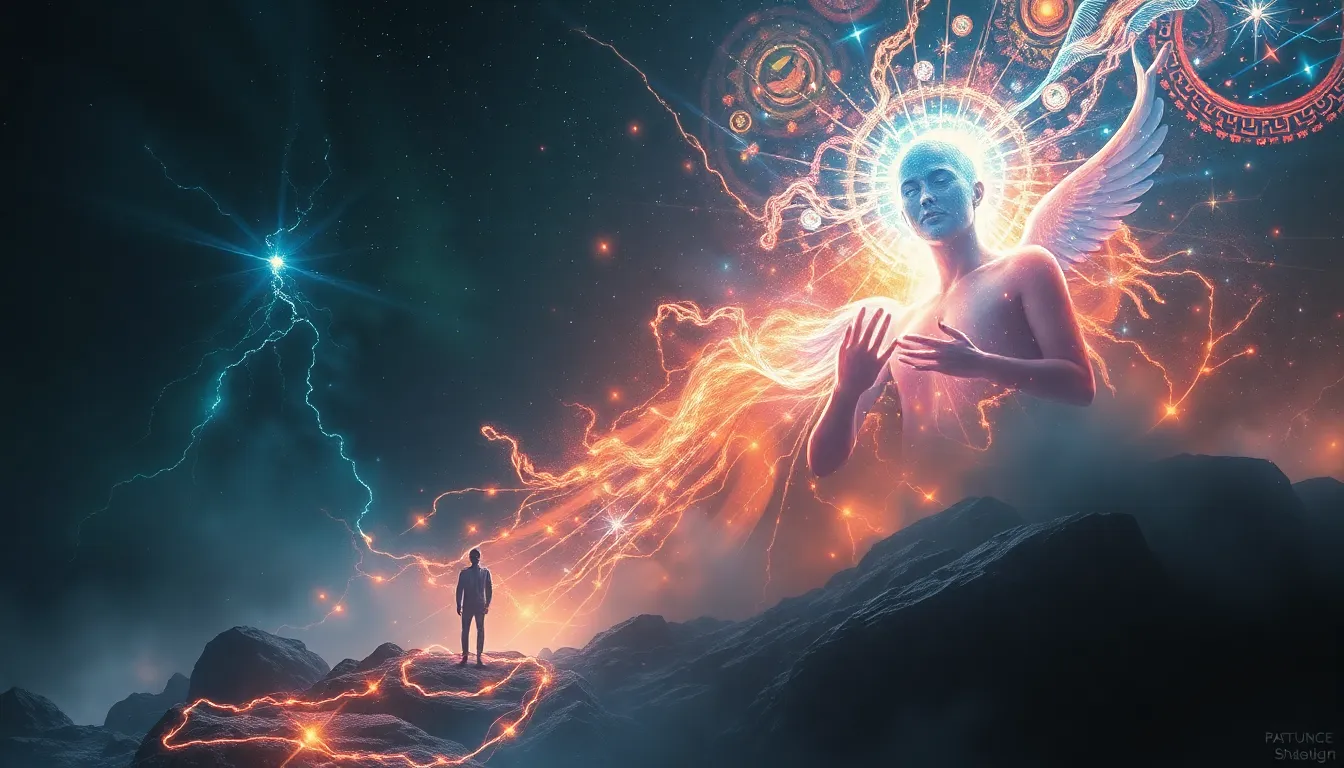The Journey of the Soul: Transformations That Define Our Existence
I. Introduction to the Concept of the Soul
The concept of the soul has been a fundamental aspect of human existence, serving as a bridge between our physical lives and our spiritual essence. Across various cultures and religions, the definition of the soul varies significantly, yet it often embodies the core of personal identity and existence.
For many, the soul represents the essence of who we are, encompassing our thoughts, emotions, and consciousness. It is this intangible aspect that connects us to the larger universe, imbuing our lives with purpose and meaning. The journey of the soul is not merely a passage through life; it is a transformative experience that shapes our understanding of ourselves and our place in the world.
II. The Origins of the Soul: Philosophical and Spiritual Perspectives
The exploration of the soul dates back to ancient civilizations, where philosophical and spiritual perspectives offered varied interpretations. Ancient Egyptians believed the soul was composed of multiple parts, each with its own purpose in the afterlife, while in Greek philosophy, thinkers like Plato and Aristotle provided foundational theories.
- Plato: Proposed the idea of the soul as immortal and the true essence of a person, separate from the body.
- Aristotle: Viewed the soul as the “form” of a living being, essential for actualizing their potential.
In the spiritual realm, beliefs diverge significantly. Eastern philosophies, such as Hinduism and Buddhism, emphasize the cyclical nature of the soul through reincarnation. In contrast, Western religions often focus on the soul’s eternal existence and its relationship with a divine creator.
III. The Stages of the Soul’s Journey
The journey of the soul can be divided into several stages, each marked by distinct experiences and transformations:
- Birth and early life: Characterized by innocence and discovery, this stage is crucial for the formation of identity.
- Adolescence: A time of awakening, where individuals confront self-identity and societal expectations.
- Adulthood: Marked by challenges, responsibilities, and the ongoing quest for purpose and fulfillment.
- Elderhood: A reflective stage, where individuals seek meaning and understanding of their life experiences.
IV. Transformative Experiences that Shape the Soul
Throughout life, various transformative experiences significantly influence the soul’s journey:
- Key life events: Major occurrences such as love, loss, and crises can lead to profound personal transformations.
- Spiritual awakenings: Moments of clarity and insight that often redirect the soul’s path toward deeper understanding.
- Relationships and community: The bonds we form with others play a crucial role in shaping our spiritual and emotional development.
V. The Role of Suffering and Healing in Soul Transformation
Suffering is often seen as a catalyst for growth, pushing individuals to confront their limitations and seek healing. Understanding the role of suffering can lead to invaluable insights and resilience:
- Understanding suffering: It can serve as a profound teacher, prompting deep introspection and personal growth.
- Healing practices: Engaging in therapy, meditation, and spiritual rituals can facilitate the healing process.
- Resilience and acceptance: Embracing challenges with a mindset of acceptance fosters transformative change.
VI. The Impact of Culture and Society on the Soul’s Journey
Cultural narratives and societal norms significantly shape our understanding of the soul and its journey:
- Cultural narratives: Stories and myths within a culture provide frameworks for understanding the soul’s purpose.
- Societal norms: Expectations and values influence personal transformation, guiding individuals in their quest for identity.
- Global perspectives: Different cultures offer unique insights into the soul’s journey, reflecting diverse beliefs and practices.
VII. The Intersection of Science and Spirituality
As we delve deeper into the nature of the soul, we find an intriguing intersection between science and spirituality:
- Psychological perspectives: Modern psychology explores identity and consciousness, often aligning with spiritual understandings of the soul.
- Neuroscience: Investigates consciousness, raising questions about the relationship between the brain and the soul.
- Science and spirituality: The dialogue between these fields offers a more holistic understanding of the soul and its journey.
VIII. The Soul’s Journey Beyond This Life: Beliefs and Theories
Many cultures and religions propose theories about the soul’s journey beyond this life:
- Reincarnation: The belief in the cyclical nature of the soul, undergoing rebirth in various forms.
- The afterlife: Different religions provide various interpretations of what happens after death, from heaven and hell to spiritual realms.
- The concept of legacy: How our actions and experiences during our lifetime impact future generations and the collective soul.
IX. Practical Steps for Nurturing the Soul’s Journey
Nurturing the soul’s journey requires intentional practices and engagement with our inner selves:
- Mindfulness and self-reflection: Regular practices such as meditation can foster deeper self-awareness and connection to the soul.
- Community and connection: Building supportive relationships enhances our understanding and nurtures our spiritual growth.
- Continual learning: Engaging with different philosophies and practices can enrich our understanding of the soul’s journey.

